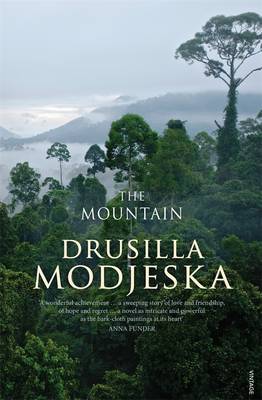Reviewed by Michael @ Knowledge Lost on
The Mountain I believe was her first attempt at a purely fiction novel, but even this book has a lot of elements that might be considered non-fiction. I do like a book that uses real events and builds a story around them and I think Drusilla Modjeska did a decent job at doing just that. The first part of this book is a real coming of age story in Papua New Guinea during a time of colonialism. While there seemed to be a handful of characters this story covers (including Rika, Leonard, Jacob, Martha and Laedi) the books does a nice job of introducing each of the characters in this part of the book. The second part of the novel deals with a new generation who are dealing with the effects of everything that has happened. This generation is questioning their identity and the fallout of independence.
I really enjoyed learning more about Papua New Guinea’s history, featuring Whitlam government granting them independence and his dismissal. It was also nice to see the book revolving around other aspects of Papua New Guinea other than the Kokoda Track; which does feature but not in a huge way. Drusilla Modjeska took an interesting approach of making The Mountain the centre of this novel and almost took it to a point where she was making The Mountain a central character. This tactic helped drive the story a little for me; it was almost like the mountain has some secrets it didn’t want to tell.
I really wanted to enjoy this book more than I did but I felt the book ended up being too nice. While there are a lot of bad things happening during this book, the story itself felt too cutesy for me to enjoy properly. I think the characters were decent but I never felt like I knew them well enough to care about the struggles that they faced. I read this book right after reading another character driven book, The Red House by Mark Haddon, and I think Modjeska’s story was nice, but Haddon’s The Red House seemed to outshine The Mountain in terms of characters and exploring their personal struggles.
Reading updates
- Started reading
- 24 May, 2012: Finished reading
- 24 May, 2012: Reviewed
